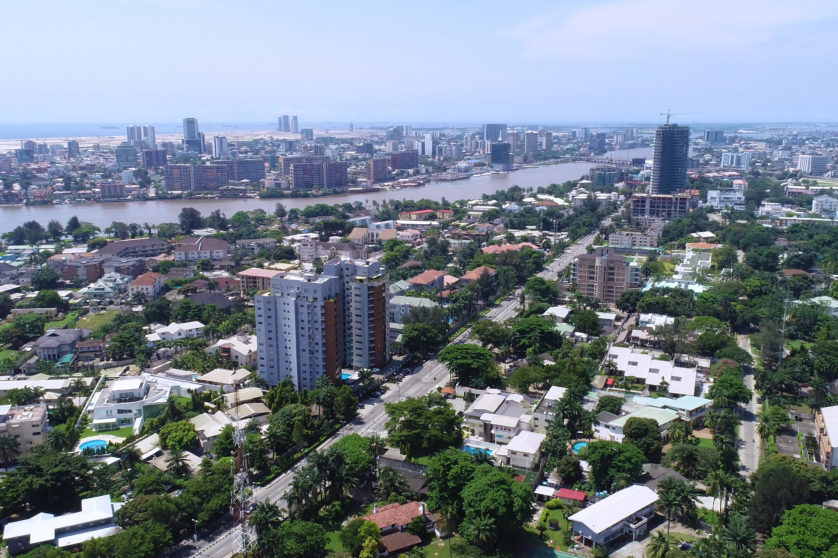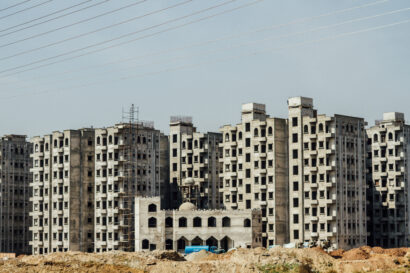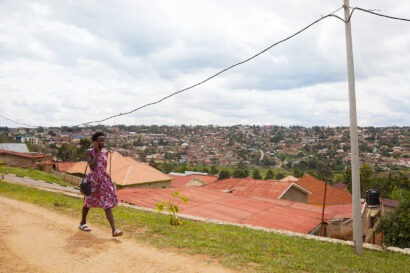So far, policy discussions about tax responses to Covid-19 have focused overwhelmingly on how to offer immediate tax relief. There is a clear sequence in these discussions: tax relief today, expanded revenue collection in the future to compensate. This blog explores a less conventional argument: that African governments may want to think much more immediately about sustaining—and even expanding—taxation of rich individuals in particular. It outlines the arguments for this strategy and examines the nuts and bolts of what it might entail, as well as the politics of making it a reality, in the hope of sparking broader discussion.
Why focus on taxing the rich now?
There are at least four reasons why African tax responses to Covid-19 should de-emphasise tax relief, and place greater priority on raising revenue from rich individuals:
- The limited reach of formal tax systems: Formal tax systems in Africa have a comparatively limited reach among individuals and businesses. Generalised formal sector tax relief will largely benefit relatively wealthy individuals and better-off businesses.
- High external debt is limiting public spending: Many African countries already face mounting debt problems, limiting the scale of government responses. Debt relief would help, but whether it will be on the scale and timeline needed is at best uncertain.
- Revenue shortfalls have hidden costs: When the rich fail to pay taxes, it is often the poor who invisibly bear the consequences. Growing evidence shows that frontline funding shortfalls are often met through informal user fees and contributions paid by the poor.
- Waiting may have high costs: African administrations likely face greater technical, capacity, and political challenges in implementing temporary tax relief measures today, and then rapidly ramping up again post-crisis.
Essentially, in lower-income countries there is a starker tension between the desire to offer fiscal relief, and the need for revenue to sustain social protection programs in the short-term and avoid cuts to services in the medium-term. Reduced revenue collection may cause more harm than good if it leads to reduced public spending targeting the poor. Focusing on taxing the rich – despite the risks and challenges – may be the best way to manage competing needs.
Consistent with this logic, the final items in a list of possible fiscal responses recently published by the IMF (download) include: “Monitor closely larger taxpayers likely to be able to comply with standard filing and payment obligations” and “Consider increasing higher rates of income tax/higher end property/wealth taxes, perhaps through a ‘solidarity surcharge.’”
An agenda for Africa
In important respects, societies across Africa and lower-income countries have already embraced the idea that the rich should support the Covid-19 response. This is reflected in official and non-official calls for charitable contributions—including, for example, the zakat in Muslim-majority countries. Yet this same narrative has not yet fully carried over to taxation. In the current context, African governments should:
- Raise revenue from those who have the greatest ability to pay;
- Collect taxes that are least likely to have negative short-term impacts on the economy; and
- Do so in ways that do not require significant policy or administrative changes.
But what would this mean in practice? In broad terms it points squarely toward a focus on taxing the rich. Four more concrete strategies may be useful in guiding government efforts:
1. Start with existing, underutilised taxes on personal income and property
We have ample evidence that the majority of the rich across Africa pay far less personal income tax (PIT) and property taxes than they should under the law. Both taxes should have minimal short-term costs to the broader economy, particularly if used to finance direct transfers to the poor, or to otherwise fuel short-term domestic consumption and business continuity. And collection could be substantially enhanced without any major policy or administrative reforms.
In OECD countries, personal income taxes account for about 10% of GDP, with the top 10% of payers contributing over half income tax revenue. In developing countries, PIT accounts for only about 2% of GDP, with glaring shortfalls largely due to failures to tax the rich. This is particularly true for non-wage income—from capital gains, dividends, interest, rental income or professional services—that accrues disproportionately to the wealthiest.
Property taxes are especially important to sustaining vulnerable local government budgets and services. In OECD countries, more than 2% of GDP is raised from property taxes, while in Africa it averages a mere 0.4%. Again, this discrepancy is a mainly a problem of weak administration and enforcement targeting the rich. Property markets across African have been booming. But the high-value properties of wealthy individuals (which make up the great majority of taxable value), are regularly severely undervalued, omitted from tax rolls, or the tax bills simply go unpaid. We have evidence that when governments are sufficiently motivated, they do have the capacity to identify such taxpayers, their incomes and their properties, and to rapidly enhance collection. What is needed is a concerted administrative and political commitment.
2. Broaden the base of rich taxpayers
Increasing enforcement by targeting the rich that are already in the tax net will miss the many (often richest) taxpayers who are not registered at all, or whose incomes are almost entirely unrecorded, for reasons of politics or weak administration. This will mean lost revenue and undermining public trust. Identifying missing taxpayers and incomes may not be as difficult as it seems. To expand property taxes and rental income taxes authorities can visit high value properties and neighbourhoods—including those rented by aid donors, NGOs and embassies—to establish who owns them, and what they should pay. To expand PIT collection, they may similarly search out owners of large properties, luxury cars, large companies or extensive stock portfolios, or tap into widely held public knowledge about wealthy individuals in different sectors. Talk of “broadening the tax base” in Africa is often implicitly about taxing small and informal firms. But it is broadening the base of rich taxpayers that is most needed. Focusing administrative resources on that core task stands to yield significant revenue.
3. Initially, keep it simple
Some international commentary has focused on introducing general taxes on wealth, or imposing surcharges on income and property taxes (download). These may well be good ideas. But enforcing existing laws more effectively is likely a better place to start in Africa. Focusing on existing taxes like PIT and property tax avoids the political and administrative complexities of broader changes, and the risk that new taxes will either not be enforced, or will be enforced only on a narrow segment of the rich. If surcharges for the rich are considered, they might be particularly useful for property taxes where they can be a short-term strategy to offset the undervaluation of high-value properties. Governments might alternatively consider targeted surcharges on luxury consumption—including alcohol and cigarettes, the expensive versions of which are consumed overwhelmingly by the most well-off.
4. If useful, offer targeted relief
Both personal income taxes and property taxes fall primarily on the rich. But they may also impact the broader middle class. In some cases, governments might find it useful to raise payment thresholds temporarily, in order to (a) exempt those who are more vulnerable, (b) refocus administrative resources on more valuable taxpayers, and (c) secure political support for collection. Even exempting the bottom 50% of properties or income taxpayers might reduce revenue by only 10-15%. Tax officials might achieve the same goal informally by refocusing almost all administrative resources on the rich, without formally announcing exemptions for those with lower incomes. The key will be proving to taxpayers that any exemptions genuinely benefit those with lower incomes, and are matched by actual collection from the rich.
Making taxation of the rich a political reality
The critical challenge is likely be political. Yet, this may be the right moment to tackle a persistent political challenge. The need for revenue has never been greater, and the potential benefits of public spending to support the vulnerable never more obvious. Countries might also find a concerted plan to tax the rich very helpful in arguing for greater support from donors.
In the West it has historically been moments of acute national challenge—most notably, wartime mobilisation—that have helped to usher in expanded taxation of income and wealth (paywall), galvanised by expanded fiscal needs and strengthened popular demands. Every country will need to follow its own path on such fundamental issues. But research suggests some ideas that might prove useful:
- Build a new, popular, politics of taxation: Governments have an opportunity to make a visible public argument about the importance of taxation and public services, and about the moral obligations of the rich to contribute. The vast majority of Africans would obviously and immediately benefit from addressing failures to tax the rich—this crisis is an opportunity to engage them. Governments can also speak directly to the rich, who can sometimes bypass weak public services, but cannot simply avoid this crisis (or future ones). Evidence of interdependence is on display—and feelings of national solidarity are growing in many places.
- Build public trust: Public support for taxing the rich – including from the rich themselves – has remained low in part because taxpayers do not trust tax systems, or that revenues will be used well. Governments have an opportunity to address that mistrust. Publicising rules-based tax collection, or even voluntary contributions, from wealthy taxpayers can offer proof of government commitment to fairer tax collection. Meanwhile, channelling new revenues toward a significant expansion of transfers to low-income groups or small businesses, for example, could build public confidence that revenues are being used for public benefit.
- Move decisively, but flexibly: There is an obvious risk in dramatically expanding enforcement all at once during a crisis. But there is equally risk in waiting, or trying to craft too “perfect” a long-term plan. Political opportunities may be fleeting. Revenue needs will arrive quickly, whereas administrations often move slowly. Governments would be wise to begin acting now, flexibly and incrementally, to spark and sustain public debate and attention. One place to start may be by calling for—and publicly recognising, perhaps by name—expanded compliance, or voluntary contributions from the rich. Pairing those calls with visible public spending to respond to the crisis can build support for ramping up data gathering and enforcement where needed.
All of this depends on political leadership—and potentially therefore on tax demands from civil society and others within Africa. Such political leadership is needed now more than ever.
Thank you to Mick Moore and Giulia Mascagni for their useful comments and Graeme Stewart-Wilson and Rhiannon McCluskey for their assistance in editing this piece.



